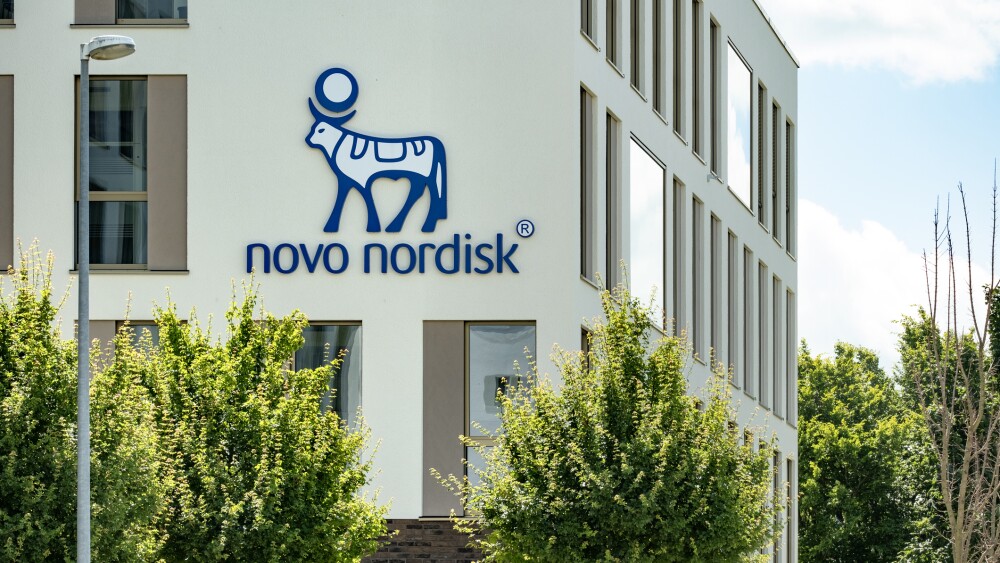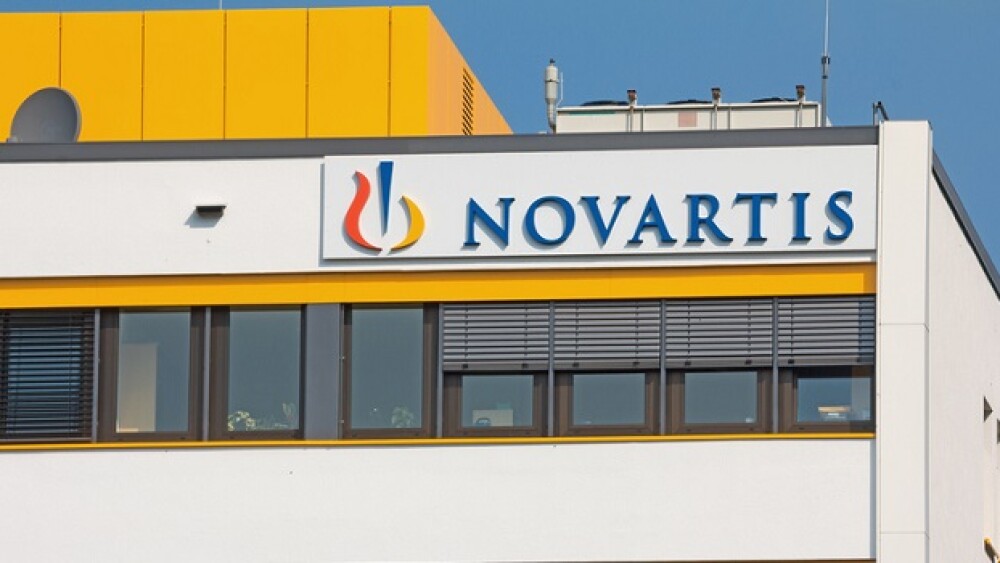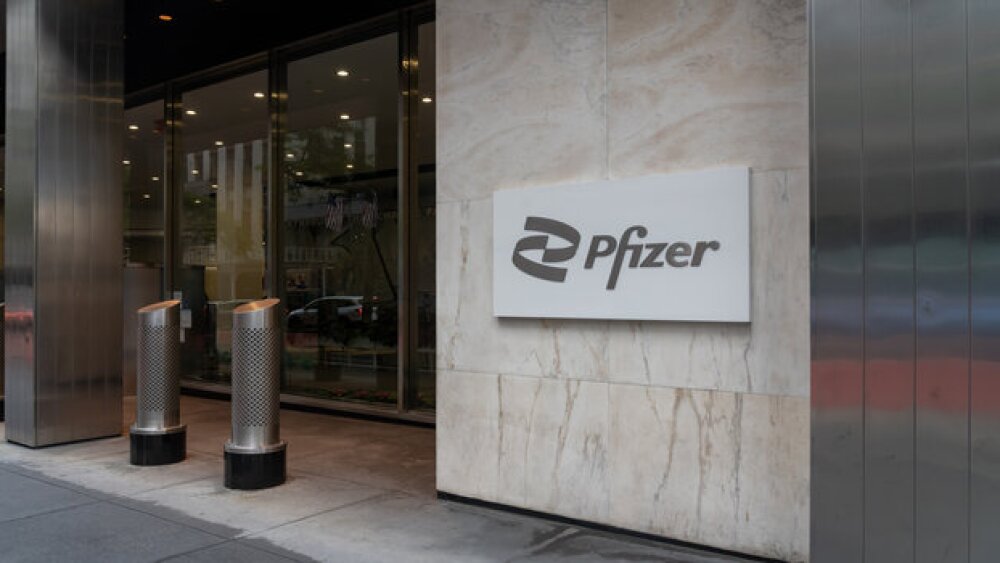PARSIPPANY, NJ--(MARKET WIRE)--May 13, 2009 -- Daiichi Sankyo, Inc. today announced that the United States Food and Drug Administration (FDA) has approved the combination treatment AZOR® (amlodipine and olmesartan medoxomil) as initial or ‘first-line’ therapy in patients likely to need multiple antihypertensive agents to achieve their blood pressure (BP) goals. The FDA approval of AZOR for first-line use reinforces current U.S. guidelines to prescribe combination drugs as initial therapy for patients likely to need more than one drug. According to the Seventh Joint National Committee on Prevention, Detection, Evaluation, and Treatment of High Blood Pressure (JNC 7), more than two-thirds of hypertensive individuals are not controlled on one drug and require two or more medications selected from different drug classes to achieve their BP goal.(2)
“The approval of AZOR as a first-line therapy gives doctors an important treatment option that may help the many patients who require multiple medications avoid several treatment steps to achieve their blood pressure goals,” said Dr. Keith C. Ferdinand, M.D., chief science officer, Association of Black Cardiologists and clinical professor, Emory School of Medicine. “Fixed-dose combinations like AZOR provide patients with a more convenient option than separate monotherapies, which may help simplify the treatment regimen and decrease overall pill burden.”
High blood pressure can cause permanent changes to blood vessels and the heart that may create serious problems elsewhere in the body.(3) Hypertension is one of the most prevalent conditions in the United States, affecting approximately one in three American adults (about 73 million people age 20 and older) and approximately one billion people worldwide.(4),(5) It is often difficult to control, and of those with high blood pressure, approximately 55 percent do not have the condition under control.(6) The number of people with high blood pressure is expected to reach about 1.6 billion worldwide by 2025.(7)
“We are very happy to see that the FDA recognizes the need for this important treatment option to help more patients reach their blood pressure goals,” said William R. Sigmund II, MD, Daiichi Sankyo Vice President of Medical Affairs. “Given the prevalence of patients with high blood pressure, this approval shows the importance of the research and innovation in cardiovascular care that is a therapeutic focus for Daiichi Sankyo.”
The AZOR® first line approval was based on data from the pivotal registrational trial, which provided estimates of the probability of patients attaining blood pressure goals with AZOR compared to amlodipine or olmesartan medoxomil alone.
About AZOR
AZOR is a convenient, once daily, single tablet combination of amlodipine, the most prescribed CCB on the market,(8) which inhibits the entrance of calcium into the blood vessel walls, with olmesartan medoxomil, the active ingredient in Benicar®, which blocks angiotensin II receptors. Angiotensin II is a hormone that causes blood vessels to tighten and narrow. Together the two medicines relax the blood vessels so that blood can flow more easily. Benicar (olmesartan medoxomil), Daiichi Sankyo’s flagship ARB product, is the fastest growing medication in the fastest growing class of blood pressure-lowering drugs.(9)
The U.S. Food and Drug Administration (FDA) granted marketing approval for AZOR in September 2007. AZOR is indicated for the treatment of hypertension, alone or with other antihypertensive agents. AZOR may be used as initial therapy in patients who are likely to need multiple antihypertensive agents to achieve their blood pressure goals. Initial therapy with Azor is not recommended in patients less than or equal to 75 years old or hepatically impaired patients. AZOR may be substituted for its individually titrated components. AZOR may also be used to provide additional blood pressure lowering for patients not adequately controlled with amlodipine (or another dihydropyridine CCB) alone or with olmesartan medoxomil (or another ARB) alone. In the pivotal registrational trial, AZOR demonstrated that eight weeks of double-blind treatment with combination therapy resulted in larger mean reductions in seated blood pressure and brought more patients to goal in comparison to the corresponding monotherapies.
IMPORTANT SAFETY INFORMATION ABOUT AZOR®
USE IN PREGNANCY
When pregnancy is detected, discontinue AZOR as soon as possible. When used in pregnancy during the second and third trimesters, drugs that act directly on the renin-angiotensin system can cause injury and even death to the developing fetus. See WARNINGS AND PRECAUTIONS, Fetal/Neonatal Morbidity and Mortality.
Hypotension in Volume- or Salt-Depleted Patients
In patients with an activated renin-angiotensin system, such as volume- and/or salt-depleted patients, symptomatic hypotension due particularly to the olmesartan component may occur after initiation of treatment with AZOR. Treatment should start under close medical supervision.
Vasodilation
Since the vasodilation attributable to amlodipine in AZOR is gradual in onset, acute hypotension has rarely been reported after oral administration. Nonetheless, caution, as with any other peripheral vasodilator, should be exercised when administering AZOR, particularly in patients with severe aortic stenosis.
Severe Obstructive Coronary Artery Disease
Patients, particularly those with severe obstructive coronary artery disease, may develop increased frequency, duration, or severity of angina or acute myocardial infarction on starting calcium channel blocker therapy or at the time of dosage increase.
Congestive Heart Failure
In general, calcium channel blockers should be used with caution in patients with heart failure.
Impaired Renal Function
In studies of ACE inhibitors in patients with unilateral or bilateral renal artery stenosis, increases in serum creatinine or blood urea nitrogen (BUN) have been reported. There has been no long-term use of olmesartan medoxomil in patients with unilateral or bilateral renal artery stenosis, but similar effects would be expected with AZOR because of the olmesartan medoxomil component.
Hepatic Impairment
Since amlodipine is extensively metabolized by the liver and the plasma elimination half-life (t1/2) is 56 hours in patients with severely impaired hepatic function, caution should be exercised when administering AZOR to patients with severe hepatic impairment.
Laboratory Tests
There was a greater decrease in hemoglobin and hematocrit in the combination product compared to either component alone.
Adverse Reactions
The only adverse reaction that occurred in greater than or equal to 3% of patients treated with AZOR® and more frequently than placebo was edema. The placebo-subtracted incidence was 5.7% (5/20 mg), 6.2% (5/40 mg), 13.3% (10/20 mg), and 11.2% (10/40 mg). The edema incidence for placebo was 12.3%.
Adverse reactions seen at lower rates but at about the same or greater incidence as in patients receiving placebo included hypotension, orthostatic hypotension, rash, pruritus, palpitation, urinary frequency, and nocturia.
In individual clinical trials of amlodipine and olmesartan medoxomil, other commonly reported adverse reactions included headache, dizziness, and flushing.
For more information on AZOR, call 877-4-DSPROD (877-437-7763) or go to the web site www.azor.com.
About Daiichi Sankyo
A global pharma innovator, Daiichi Sankyo Co., Ltd., was established in 2005 through the merger of two leading Japanese pharmaceutical companies. This integration created a more robust organization that allows for continuous development of novel drugs that enrich the quality of life for patients around the world. Areas of focus for Daiichi Sankyo’s research and development are cardiovascular disease, including therapies for dyslipidemia, hypertension, diabetes, and acute coronary syndromes. Equally important to the company is the discovery of new medicines in the areas of infectious diseases, cancer, bone and joint diseases, and immune disorders. For more information, visit www.daiichisankyo.com.
Daiichi Sankyo, Inc., headquartered in Parsippany, New Jersey, is the U.S. subsidiary of Daiichi Sankyo Co., Ltd. For more information on Daiichi Sankyo, Inc., please visit www.dsi.com.
(1) National High Blood Pressure Education Program, JNC 7: The Seventh Report of the Joint National Committee on Prevention, Detection, Evaluation and Treatment of High Blood Pressure, December, 2003, p. 31. (2) National High Blood Pressure Education Program, JNC 7: The Seventh Report of the Joint National Committee on Prevention, Detection, Evaluation and Treatment of High Blood Pressure, December, 2003, p. 4, 26. (3) National Heart, Lung and Blood Institute, High Blood Pressure Key Points. Available at: http://www.nhlbi.nih.gov/health/dci/Diseases/Hbp/HBP_Summary.html. Accessed March 26, 2009. (4) American Heart Association. 2004 High Blood Pressure Statistics. Available at: http://www.americanheart.org/presenter.jhtml?identifier=4621. Accessed March 26, 2009. (5) Chobanian AV, Bakris GL, Black HR et al. The Seventh Report of the Joint National Committee on Prevention, Detection, Evaluation, and Treatment of High Blood Pressure. JAMA. 2003;289:2560-2572. (6) American Heart Association. Heart Disease and Stroke Statistics – 2008 Update. Dallas, Tex. Available at: http://www.americanheart.org/downloadable/heart/1200082005246HS_Stats%202008.final.pdf. Accessed May 11, 2009. (7) Kearney PM, et al. Global burden of hypertension: analysis of worldwide data. Lancet 2005, 365:217-23. (8) Pfizer. About Norvasc. Available at: http://www.norvasc.com/high-blood-pressure-medicine/about-norvasc.asp. Accessed March 26, 2009. (9) Data are representing May 2002 - February 2006 from IMS Health. National Prescription Audit, February 2006.
Contact:
For more information, please contact: Alyssa Dargento Daiichi Sankyo, Inc. (973) 944-2913 (973) 727-1604 (cell) adargento@dsi.com
Matthew Gold Hill & Knowlton (212) 885-0564 (631) 804-3639 (cell) matthew.gold@hillandknowlton.com




